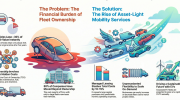When it comes to purchasing a new vehicle, budget is often a primary concern for buyers. The automotive market offers a plethora of choices, but two brands that stand out in the value segment are Honda and Hyundai. Both manufacturers are known for their reliability, efficiency, and overall quality, but how do they compare when it comes to pricing? In this article, we’ll take an in-depth look at Honda and Hyundai, examining their costs, features, and what you can expect when making a purchase.
Understanding the Market Position
Honda and Hyundai occupy a unique space in the automotive market. Honda has built a reputation for producing vehicles that are not only reliable but also tend to hold their value well over time. On the other hand, Hyundai has made significant strides in recent years, offering a diverse lineup of vehicles that provide excellent features at competitive prices. But which one is cheaper? Let’s break it down.
Pricing Overview
To get a clearer picture, let’s compare some of the popular models from both manufacturers:
- Honda Civic: Starting price around $23,000
- Hyundai Elantra: Starting price around $21,000
- Honda CR-V: Starting price around $28,000
- Hyundai Tucson: Starting price around $26,000
From the outset, Hyundai vehicles generally have a lower starting price compared to Honda models. This makes Hyundai an attractive option for budget-conscious buyers.
Cost of Ownership
While the initial purchase price is a significant factor, the total cost of ownership should also be considered. This includes insurance, maintenance, and fuel costs. Both brands are known for their reliability, which can lead to lower maintenance costs over time. However, Hyundai often offers longer warranties, which can alleviate some of the long-term costs associated with ownership.
- Honda Warranty: Typically 3 years/36,000 miles
- Hyundai Warranty: Typically 5 years/60,000 miles with additional powertrain coverage
This more extended warranty from Hyundai can lead to significant savings for drivers who plan to keep their vehicles for many years.
Fuel Efficiency
Fuel efficiency is another critical component of cost. Generally, both Honda and Hyundai offer models with competitive fuel economy. However, Honda has often been recognized for its fuel-efficient engines, particularly in models like the Civic and Accord, which can save drivers a considerable amount at the pump.
Resale Value
Resale value can also affect the overall cost of ownership. Honda vehicles tend to retain their value better than Hyundai. This means that while a Hyundai might be cheaper upfront, a Honda could prove to be a wiser investment in the long run due to its higher resale value.
In the battle of affordability between Honda and Hyundai, Hyundai generally takes the lead with lower starting prices and longer warranties. However, Honda offers superior resale value and a proven track record of reliability. Ultimately, the choice between the two will depend on individual needs and financial priorities. For those who prioritize initial cost and warranty coverage, Hyundai is the clear winner. For buyers focusing on long-term value and resale potential, Honda remains a strong contender.
Whether you lean towards Honda or Hyundai, both brands offer excellent vehicles that can fit a variety of budgets and lifestyles. The best approach is to test drive models from both manufacturers, assess your needs, and make an informed decision based on what matters most to you.
Evaluating Features and Performance
Price is only one aspect of the buying decision; features and performance also play vital roles in determining overall value. When comparing Honda and Hyundai, both manufacturers offer a range of vehicles equipped with modern technology, safety features, and comfortable interiors. However, there are nuances worth noting.
Honda’s lineup is often praised for its engaging driving dynamics. The Honda Civic and Accord, for instance, are renowned for their responsive handling and robust engine options, giving drivers a spirited experience on the road. Additionally, Honda’s reputation for safety is bolstered by consistent high ratings in crash tests, making them a reliable choice for families.
In contrast, Hyundai has made significant investments in technology and safety features. Many of their models come equipped with advanced driver-assistance systems as standard, such as adaptive cruise control, lane-keeping assist, and blind-spot monitoring. Furthermore, Hyundai’s infotainment systems are user-friendly, often featuring larger touchscreens and more intuitive interfaces compared to Honda.
Design and Aesthetics
Another factor to consider is design. Honda vehicles tend to have a classic and functional design language, appealing to those who favor practicality over flair. The Civic, while stylish, maintains a certain understated elegance that resonates with a broad audience.
Hyundai, on the other hand, has embraced a bold design philosophy, particularly evident in models like the Elantra and Sonata. With distinctive lines and a more aggressive stance, Hyundai vehicles are designed to stand out on the road. This aesthetic appeal can be a deciding factor for buyers who prioritize style alongside functionality.
Availability of Hybrid and Electric Options
As the automotive industry shifts towards sustainability, the availability of hybrid and electric vehicles (EVs) is increasingly significant. Honda has made strides in this area with models like the Honda Insight and the upcoming electric versions of its popular cars. However, Hyundai has been particularly proactive, offering a diverse range of electrified options, including hybrids, plug-in hybrids, and fully electric vehicles, such as the Hyundai Ioniq and Kona Electric.
This robust EV lineup not only showcases Hyundai’s commitment to innovation but also provides buyers with more choices for environmentally friendly options, making it a strong contender for those looking to reduce their carbon footprint.
Consumer Satisfaction and Reviews
Consumer satisfaction ratings can also inform the decision-making process. Honda consistently ranks high in customer satisfaction surveys, often being lauded for its reliability and resale value. However, Hyundai has made impressive gains in this area, with many customers praising its warranty offerings and value for money. Recent studies have shown that Hyundai owners often report high levels of satisfaction with their vehicles, particularly regarding the features and technology provided at their price points.
Final Thoughts
Choosing between Honda and Hyundai ultimately depends on individual preferences and priorities. For those seeking a vehicle with a strong resale value, engaging performance, and a reputation for reliability, Honda remains a trusted choice. Conversely, buyers looking for affordability, an extensive warranty, cutting-edge technology, and a bold design may find Hyundai to be the better option.
In the end, both brands offer compelling choices for a variety of drivers. The best approach is to weigh the factors that matter most to you, test drive models from both manufacturers, and choose the one that aligns best with your lifestyle and budget. Whether you choose Honda or Hyundai, you’re bound to find a vehicle that meets your needs without breaking the bank.

